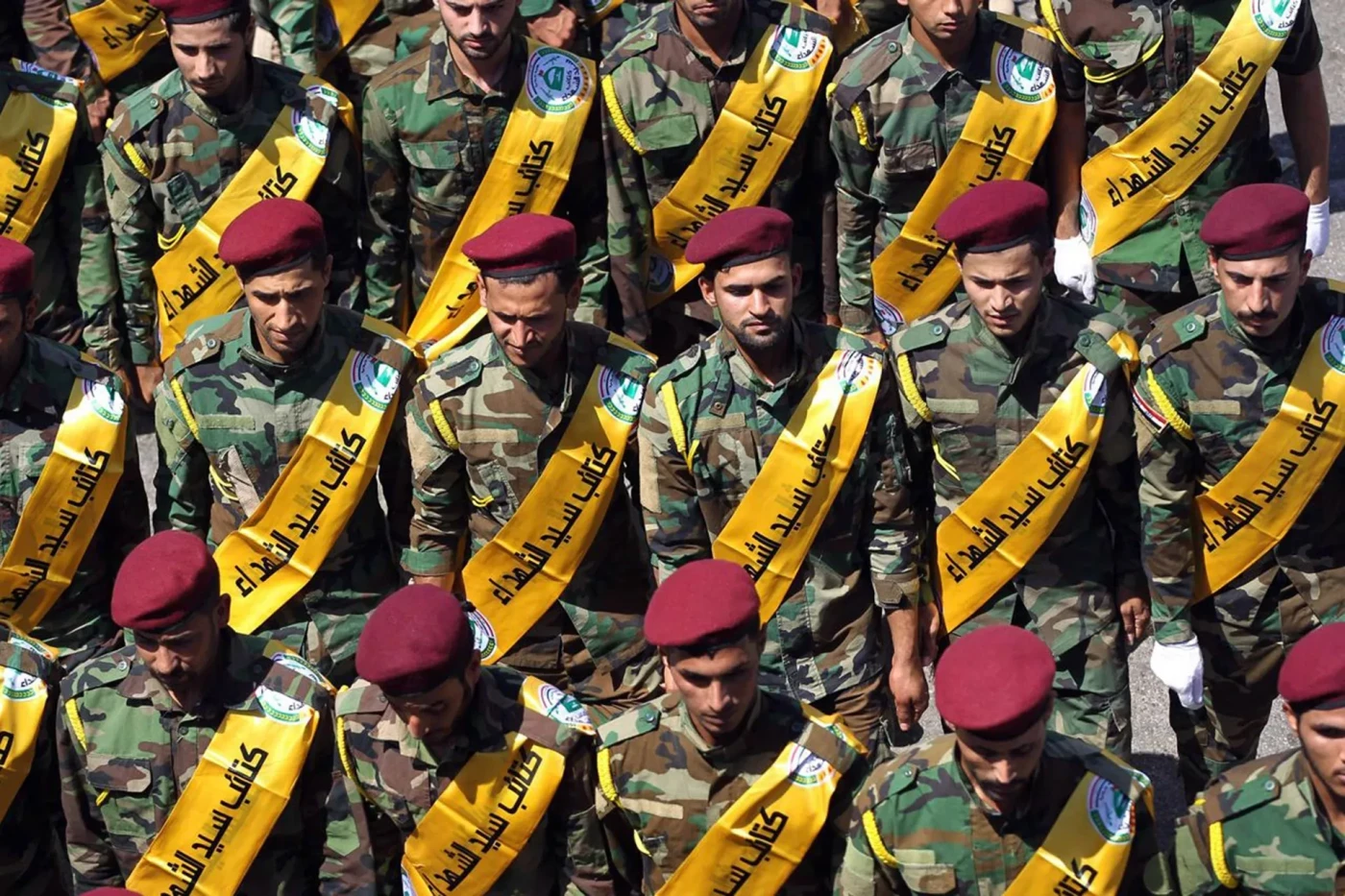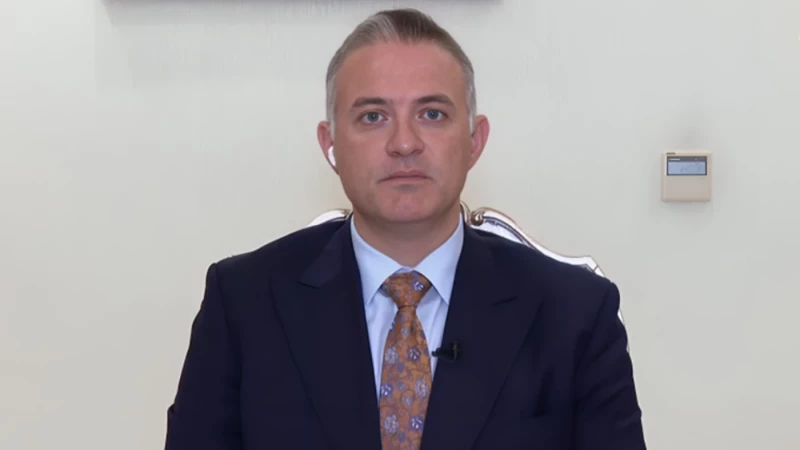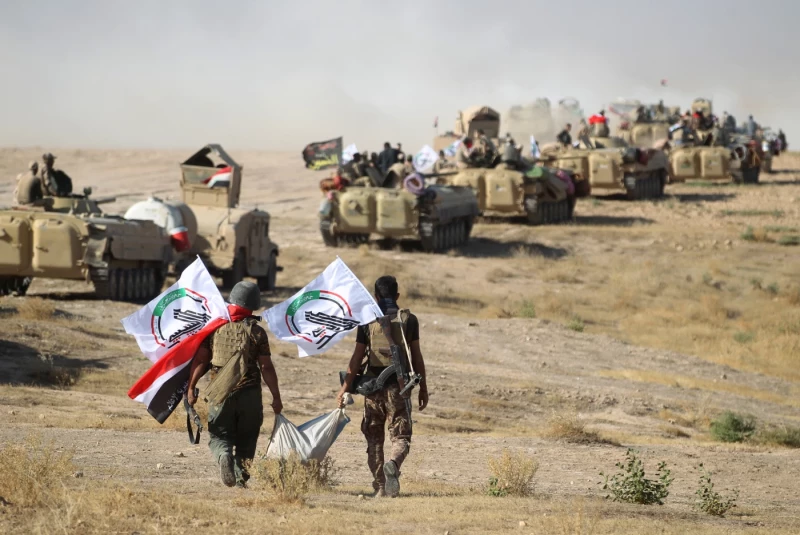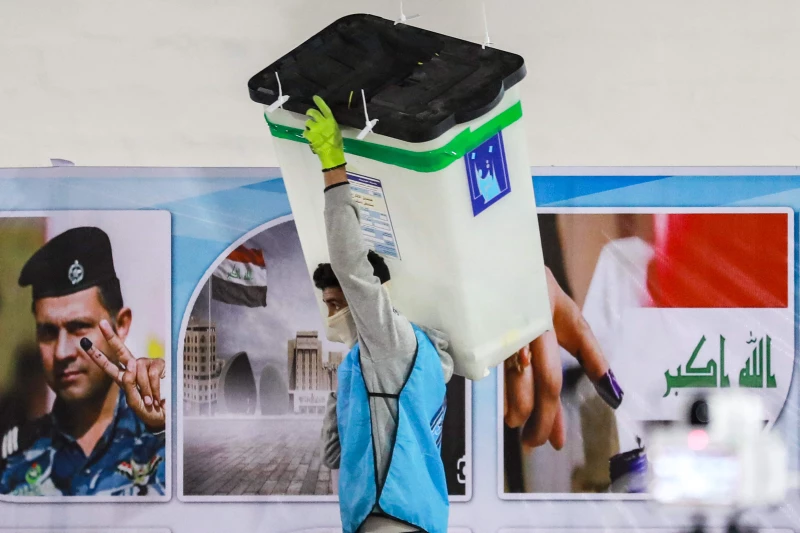ERBIL, Kurdistan Region of Iraq - The issue of delayed salaries for members of Iraq’s Popular Mobilization Forces (PMF) is escalating, revealing a complicated mix of alleged external pressure, technical problems, and limitations in the country’s financial system.
Salaries for the month of May have yet to be paid to PMF members, who normally recieve their pay mid-month. While Iraqi officials say the crisis may soon be resolved, other voices claim that direct US pressure caused the delay and warn of broader consequences for Iraq’s banking sector.
Abbas Combat Division: US Treasury delays salaries
The commander of the Abbas Combat Division, Maytham al-Zaidi, said the US Treasury was directly responsible for the delay in PMF salaries. In remarks reported by The New Region, Zaidi said the US Treasury had informed the company managing PMF salaries that it must either withdraw from the process or face sanctions.
He added that the company had notified Rafidain Bank and the PMF authority of its decision to withdraw and urged action to avoid further problems.
Zaidi blamed some PMF officials for failing to quickly respond to the issue. “The funds are secured, but the disbursement is facing problems,” he said, warning that “any company handling PMF salaries would face US sanctions.”
Parliament’s finance committee: Technical error
Meanwhile, Iraq’s parliamentary finance committee said Saturday the salary delay is due to a technical issue and is close to being resolved.
“There was a technical fault or mistake in the PMF salary file, and we are working to fix it and release the salaries in the coming hours,” committee member Moein al-Kadhimi told The New Region.
Kadhimi said they have been following up with government bodies “without interruption for days.” He stressed that the delay was an unintentional error and added that the Iraqi government is obligated to pay PMF salaries like all other state employees.
“Any delay will force us to take firmer action,” he said, rejecting any claims of foreign interference. “We completely reject any such pressure and will strongly resist it.”
Calls for transparency
In a related statement, MP Thaer al-Jubouri, a member of the Coordination Framework, told The New Region on Thursday that a “technical fault, according to authorities,” caused the delay in paying PMF fighters.
Jubouri urged the PMF authority and government financial agencies to explain the issue clearly and act quickly to resolve it. He did not rule out “foreign or internal political pressure” behind the delay, calling it a possible attempt to undermine the PMF and its members.
“This must be addressed,” he said. “There needs to be an official, clear, and timely explanation so the public and PMF families understand what’s going on.”
He warned of a strong response in Parliament and the broader political space if the delay continues without explanation.
Foreign interference
Also on Thursday, MP Mustafa Sanad said there had been “foreign interference” that blocked the activation of electronic payment cards used by PMF members.
Sanad said the PMF had already uploaded salaries to the cards, but activation was stopped due to outside influence. He said the PMF’s administrative and financial office is now taking alternative steps to solve the issue “within two days, God willing,” unless new problems arise.
Wider implications
Reports in recent months have shown that US sanctions on certain Iraqi banks accused of sending dollars to sanctioned countries such as Iran and Syria have affected dollar access in Iraq and weakened the local market.
A report by The Wall Street Journal said Iran-linked armed groups in Iraq, after losing access to US dollars, turned to using electronic cards to get the currency.
According to the report by David S. Cloud, Iraq was a minor market for Visa and Mastercard in early 2023, generating under $50 million per month in cross-border transactions. That figure jumped to $1.5 billion by April of the same year, a 2,900% increase.
“What changed?” the report asked. The answer: “Iran-backed Iraqi militias found ways to use Visa and Mastercard networks to access US dollars for themselves and their allies in Tehran,” based on American and Iraqi sources and documents seen by the newspaper.
The shift came after the US Treasury and the Federal Reserve Bank of New York closed a loophole in late 2022 that had allowed Iraqi banks lacking strong anti-money laundering protections to make international wire transfers.
This loophole, part of a US-built system during its occupation of Iraq, had allowed Iran and its allies to access billions of dollars over more than a decade. Once that system was shut down, militias quickly shifted to using payment cards instead.
International banking services suspended by Iraqi bank
On May 31, First Iraqi Bank (FIB) officially informed customers that it had suspended international payments through its cards.
In a statement received by The New Region, the bank said this move would stop the use of its cards abroad. However, it assured customers that the cards would still work inside Iraq and that all other services would remain fully operational.
This announcement came after an April report by The New Region, which cited a banking source saying Iraq’s central bank had instructed local banks to suspend Mastercard services for international use.


 Facebook
Facebook
 LinkedIn
LinkedIn
 Telegram
Telegram
 X
X



